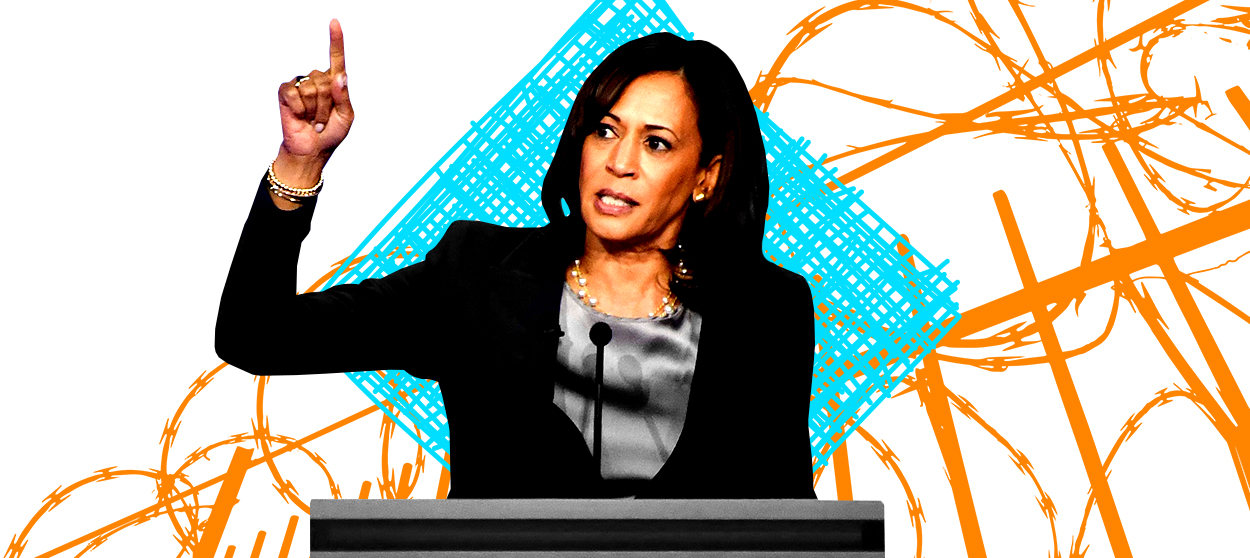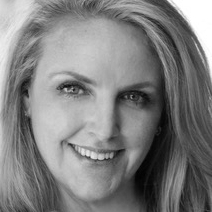What Democratic candidates need to admit about criminal justice reform
This isn't a problem a new president can fix — but there are important things they can do


A free daily email with the biggest news stories of the day – and the best features from TheWeek.com
You are now subscribed
Your newsletter sign-up was successful
Only four candidates had an opportunity to address criminal justice reform in the third Democratic debate: Senators Kamala Harris, Cory Booker, and Amy Klobuchar, and former Vice President Joe Biden.
Collectively, those four announced grand plans of directly releasing thousands of people, banning private prisons, improving prosecutorial accountability, decarcerating women and children, ending solitary confinement, restoring voting rights, and lowering sentences for people in state prisons.
It's too bad that no president can pull it off.
The Week
Escape your echo chamber. Get the facts behind the news, plus analysis from multiple perspectives.

Sign up for The Week's Free Newsletters
From our morning news briefing to a weekly Good News Newsletter, get the best of The Week delivered directly to your inbox.
From our morning news briefing to a weekly Good News Newsletter, get the best of The Week delivered directly to your inbox.
Campaign terrain as it pertains to crime has changed drastically from previous elections. Three candidates — Harris, Elizabeth Warren and Bernie Sanders — have released comprehensive agendas in the past few weeks. South Bend Mayor Pete Buttigieg had already announced his Douglass Plan — a schematic for overall racial justice, named after Frederick Douglass — and Biden unveiled his detailed decarceration strategy in July.
In their formal platforms, Democratic candidates regurgitate the same calls to end harmful practices that have echoed in congressional offices for years. Virtually all of the candidates with fully fleshed plans support ending the death penalty, ending money bail, ending mandatory minimum sentences, ending reliance on private prisons, ending the war on drugs. These are mainstay issues, important and obvious. Anyone with a couple of hours and a Google app would have come up with the same.
Timid or bold, federal policy requires congressional approval. While political will has bent and justice reform has become a more bipartisan issue, we'd be fools to think that appeals to penal populism — the divisive rhetoric that appears after every mass shooting, conservative candidates' language of thuggery and irredeemability — won't attract some support on Capitol Hill. Politicians know many of their constituents have developed an addiction to that fear and what else should public servants do besides get their people a fix? No presidential candidate can bank on Congress' assent, especially if Senate Majority Leader Mitch McConnell retains his post.
Of course, promises for Medicare-for-All or a Green New Deal would also require the legislative and executive branches to work together, too; there's actually very little that a candidate is able to campaign on that can be accomplished by executive order alone.
A free daily email with the biggest news stories of the day – and the best features from TheWeek.com
But criminal justice reform is also unique in the respect that about 90 percent of criminal justice is localized and easily resists federal policy changes, as Senator Klobuchar noted during the debate. Much of Congressional policy affects only federal inmates and people charged with federal crimes, people who constitute approximately 10 percent of the system. The rest of the sprawling mess of incarceration is beyond any president's control.
Promises to end cash bail or abolish the death penalty need the House of Representatives and Senate's agreement, and even then all those policies can do is incentivize state and local policy. There's no federal fiat power that can overhaul all the disparate criminal justice systems nationwide.
The best criminal justice presidential platform, therefore, is aspiration and humanization, one with less policymaking and more emphasizing inherent human dignity and rights of the people in this system. Candidates can't change policy so they have to change the conversation.
This is exactly where President Trump is weak. Sure, he signed the FIRST STEP Act which has caused some rapid decarceration since Christmas, and he's whined about being left out of Sunday night's "Justice for All" Town Hall on MSNBC. But his other behavior — refusing to apologize for calling for the death penalty for the "Central Park 5," worsening conditions for the impoverished by making it harder for them to enroll in Medicaid or SNAP, tacking on additional criminal background check requirements for potential federal employees — shows his true colors. The talk doesn't match the FIRST STEP walk.
The opposite is true for the Democratic field; talk is plentiful, especially on platforms, but walking is scarce, even as the candidates criss-cross the country between Iowa and New Hampshire.
Rather than promising to end all mandatory minimum sentences, candidates could visit a prison and address the fact that more than half the people in state prisons are confined for a violent crime, often under mandatory sentencing laws, but really aren't violent people or a threat to the public.
In lieu of agreeing to Ban the Box, (a federal bill that would do exactly that, The Fair Chance Act, has already passed the House and awaits a vote in the senate, where half of Thursday night's debaters work, but still can't move because Senate Majority Leader McConnell won't let it through) contenders could hire a formerly incarcerated person for their campaign staff.
Instead of promising 50 percent decarceration, they could emphasize that 95 percent of inmates will reenter society anyway someday, so it's best to invest in programming for all of them.
This isn't to say that idealistic policy goals have no place in modern campaigns. As Elizabeth Warren noted in the July debate, there's no point to a presidential bid if a candidate limits herself in what she believes she can accomplish.
But acknowledging a president's restricted ability to reform the system isn't a cop out; it's the kind of honesty and transparency that many voters crave. Confessing this presidential reality doesn't prevent candidates from stumping on the issue. Indeed, they need to do that because voters are waiting for it. Approximately 91 percent of Americans support criminal justice reform. There are 113 million voters who have or had an immediate family member who was incarcerated.
There's no doubt that an informed and intrepid stance on criminal justice is key to winning the Democratic nomination in 2020. The threshing of the democratic field might suggest this itself, since the lower-polling candidates who didn't make tonight's stage are the ones who have few clearly articulated planks of what they will do about mass incarceration. The more popular politicians are the ones with the grander proposals.
But the one who will emerge to represent the Democratic party is the one who will acknowledge that his role in reform is more one of thought leadership on the way we behold people in the system than it is crafting a law that will help a just a few.
Chandra Bozelko and Ryan Lo and both formerly incarcerated. Ms. Bozelko is a columnist with GateHouse Media and Mr. Lo founded and runs Unlabeled Digital Media.
Want more essential commentary and analysis like this delivered straight to your inbox? Sign up for The Week's "Today's best articles" newsletter here.
Chandra Bozelko and Ryan Lo and both formerly incarcerated. Ms. Bozelko is a columnist with GateHouse Media and Mr. Lo founded and runs Unlabeled Digital Media.
-
 The ‘ravenous’ demand for Cornish minerals
The ‘ravenous’ demand for Cornish mineralsUnder the Radar Growing need for critical minerals to power tech has intensified ‘appetite’ for lithium, which could be a ‘huge boon’ for local economy
-
 Why are election experts taking Trump’s midterm threats seriously?
Why are election experts taking Trump’s midterm threats seriously?IN THE SPOTLIGHT As the president muses about polling place deployments and a centralized electoral system aimed at one-party control, lawmakers are taking this administration at its word
-
 ‘Restaurateurs have become millionaires’
‘Restaurateurs have become millionaires’Instant Opinion Opinion, comment and editorials of the day
-
 The billionaires’ wealth tax: a catastrophe for California?
The billionaires’ wealth tax: a catastrophe for California?Talking Point Peter Thiel and Larry Page preparing to change state residency
-
 Bari Weiss’ ‘60 Minutes’ scandal is about more than one report
Bari Weiss’ ‘60 Minutes’ scandal is about more than one reportIN THE SPOTLIGHT By blocking an approved segment on a controversial prison holding US deportees in El Salvador, the editor-in-chief of CBS News has become the main story
-
 Has Zohran Mamdani shown the Democrats how to win again?
Has Zohran Mamdani shown the Democrats how to win again?Today’s Big Question New York City mayoral election touted as victory for left-wing populists but moderate centrist wins elsewhere present more complex path for Democratic Party
-
 Millions turn out for anti-Trump ‘No Kings’ rallies
Millions turn out for anti-Trump ‘No Kings’ ralliesSpeed Read An estimated 7 million people participated, 2 million more than at the first ‘No Kings’ protest in June
-
 Ghislaine Maxwell: angling for a Trump pardon
Ghislaine Maxwell: angling for a Trump pardonTalking Point Convicted sex trafficker's testimony could shed new light on president's links to Jeffrey Epstein
-
 The last words and final moments of 40 presidents
The last words and final moments of 40 presidentsThe Explainer Some are eloquent quotes worthy of the holders of the highest office in the nation, and others... aren't
-
 The JFK files: the truth at last?
The JFK files: the truth at last?In The Spotlight More than 64,000 previously classified documents relating the 1963 assassination of John F. Kennedy have been released by the Trump administration
-
 'Seriously, not literally': how should the world take Donald Trump?
'Seriously, not literally': how should the world take Donald Trump?Today's big question White House rhetoric and reality look likely to become increasingly blurred
